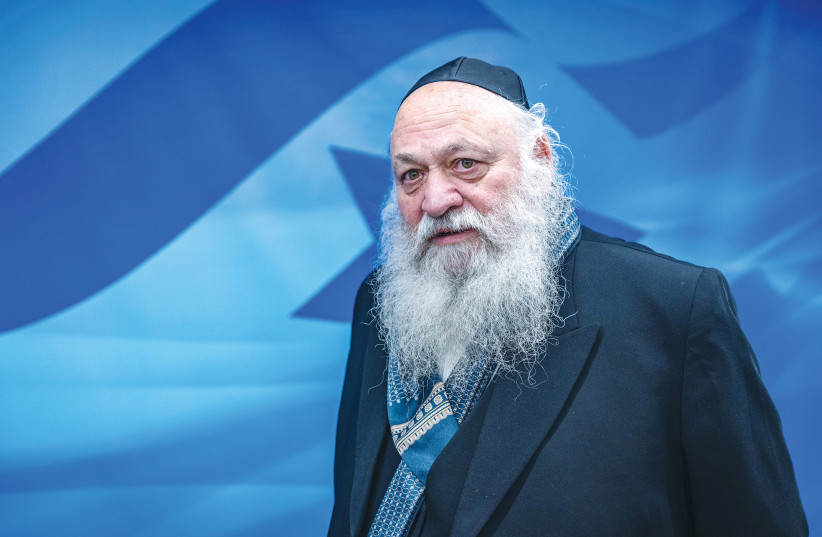The Victory of Israel Conference which took place in Jerusalem’s International Conference Center (ICC) last week, under the heading “Settlement Brings Security – Return to Gaza and North Samaria” brought joy and hope to many Israelis.
Others, including myself, were horrified.
Both sides believe the other is suffering from dangerous delusions that could impact the very existence of Israel. This duality may well point to the biggest problem facing the country – a lack of mutual understanding, as though we are using separate languages. The words are identical, but their meaning and implications are different. How did Israel reach this point?
Zionism challenged entrenched habits which had developed over centuries in the Diaspora. The distant location, an object of longing and prayers, became a practical program. Two main responses developed among religious Jews, who were the majority.
The first can be termed “pragmatic religious Zionism.” Rabbis were among the leaders of the Hovevei Zion movement which preceded the first Zionist Congress. Shmuel Mohliver, a leading Russian rabbi, called for cooperation between the adherents of haskala (enlightenment) and observant members of the Zionist movement. He encouraged the movement’s secular leaders to be sensitive to religion and to observant pioneers while attempting to recruit his rabbinical colleagues and their communities to the idea of settling the Land of Israel.

Rabbi Mordechai Eliashberg sought to combine the wisdom and study of Torah with “natural” studies, as the nation needed both. He emphasized that the movement had “religious” and “national” members, they are equal, and that their divisions were null and void.
Religious Zionists in the early coalitions
The attitude of these rabbis paved the way for religious Zionist parties to join Israel’s early coalitions, which were headed by Mapai, the Workers Party of the Land of Israel, the forerunner of the Labor party
The second approach can be defined as “anti-Zionist Orthodoxy,” which believed that organized immigration to the Land of Israel was forbidden and Jews were not to “rebel” against other nations – prayer and not action would bring redemption. Only a minority of Jews now hold this view, although ultra-Orthodox opposition to some of Israel’s secular aspects remains in place. Haredi politicians express little public interest in general topics such as international relations, and they focus only on their voters’ needs.
Two major changes accompanied the establishment of Israel in 1948. For the first time in almost 2,000 years, Jews had territory and power. For 19 years, both were limited. Then, in 1967, three weeks of existential dread culminated in six dramatic days. Israel found itself controlling vast territory that was home to historical and sanctified sites and a large local Arab population. The relief that the threat was removed was accompanied by conflicting ideas that challenge us to this day.
A national and redemptionist awakening
Inter alia, a national and redemptionist awakening accompanied the return to the nation’s sites of origin and with it questions about the standing of the local population and the implication of ongoing control. Among them, we ask: Does our faith obligate us to settle the homeland as promised to our forefathers? If not, can we rely on whoever takes over to ensure Israel’s security and wellbeing? Must we stay? Leave? At what cost?
For more than 50 years, most of the years of its existence, the State of Israel veers from here to there, and does not choose. Until October 7, it may have seemed possible to juggle. No longer.
Therefore, despite the government’s lack of official discussion about the “day after” the war, apparently behind the scenes there are ongoing processes that aim to provide a comprehensive regional solution. It is said to include recognition of Israel by Arab countries which are deemed moderate, and which will also account for Palestinian needs.
In parallel, we witnessed the Victory Conference. Two days after the International Court of Justice in The Hague demanded that Israel refrain from expelling the local population of Gaza, about half the members of the ruling coalition (including Yitzchak Goldknopf, the leader of an ultra-Orthodox party that grew out of opposition to Zionism) who were backed by leading rabbis, participated in a gathering whose agenda will provide fodder for similar procedures in the future.
Do all the participants lack common sense? Absolutely not. We witness two entirely different sets of values, divergent terminologies, opposing priorities. The pragmatic language of the limits of power meets the tongue of biblical promise; some rely on the Rock of Israel, while others look to membership in the family of democratic nations.
To satisfy the needs of those who require rabbinic guidelines, Israel urgently needs interpreters between the approaches. Their absence leaves the arena to one approach, that which was voiced in Jerusalem last week. Where are those pragmatic rabbis who oppose that agenda? Given what is at stake, it is unclear what they fear. Why they do not express their opinions in the same rabbinical terms used by its proponents?
One can but hope for the urgent emergence of successors to Rabbis Mohliver and Eliashberg, before it is too late.
The writer was Israel’s first ambassador to the Baltic states after the disintegration of the Soviet Union, ambassador to South Africa, and congressional liaison officer at the embassy in Washington. She is a graduate of Israel’s National Defense College.
